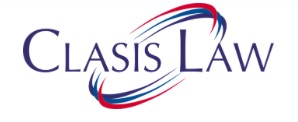23 July 2021
The Hon’ble High Court of Bombay in the case of V8 Pool Inc. vs G.P. Asphalt I and Ors held that expenses incurred by P&I Club under Maritime Labour Convention, 2006 (“MLC, 2006”) cannot be treated as sheriff’s expenses.
Brief facts and contentions placed by the parties:
The vessel GP Asphalt – I (“Vessel”) was arrested vide a commercial admiralty suit (L) No. 9620 of 2020 (“suit”) and subsequently sold for recovery of the dues. The sale proceeds were deposited with the Prothonotary and Senior Master of the Bombay High Court.
The Swedish Club (“the Applicant”) filed an Interim Application No 2227 of 2020 in the said suit, inter alia, seeking an unpaid wages amount paid by the Applicant be treated as sheriff’s expenses/ expenses for maintenance of the Vessel/expenses in course of the sale and be paid out first in priority from the sale proceeds along with other expenses in the course of the sale.
The Applicant brought to notice of Court various clauses of MLC, 2006 relating to the obligation of the Applicant under the convention vis-à-vis outstanding wages and other entitlement due from the ship-owner, cost of expatriation, and other essential needs of seafarer such as food, drinking water supplies and necessary medical care etc. It was also pleaded by the applicant that under requisite provisions of MLC, 2006, any payment made to the seafarers shall, up to the amount it has paid and following the applicable law, acquire by subrogation, assignment or otherwise, the rights which the seafarer would have enjoyed. The plaintiff in the suit opposed the application filed by the applicant stating that the four months wages cannot be paid out of the sale proceeds as a sheriff’s expenses. The plaintiff stated that as per the convention it was the duty of the applicant to incur all the expenses as stated in cited clauses, however, since the plaintiff had already consented to pay the expenses excluding the outstanding wages for which a claim has been filed with the Sheriff’s office, it would not object to the same now. It was further submitted that the Applicant has incurred those expenses under its contractual/legal obligations and hence could not make a claim to the same without filing a separate suit. It was also submitted that since the applicant is discharging its contractual obligation while incurring the required expenses, it is not required to take leave of the Court.
Thus, the issue in dispute was only Applicant’s expenses towards the four months’ wages payable to the seafarers.
Observations of the Court:
The Court observed that the certificate of entry is evidence of the contract of indemnity insurance between the owner of Vessel as a member of Applicant and Applicant. Therefore, the submission of Applicant that it is not a contractual obligation but only under the convention is providing outstanding wages, other entitlement due from the ship-owner is not correct. The Court stated that the applicant cannot claim the amount payable under contractual obligation without filing a separate suit and bypass other creditors in queue by claiming priority.
Once the Applicant makes the payment towards outstanding wages, the Applicant can apply to the Court for reimbursement of the same from the sale proceeds. Whether the said application would be by a separate suit filed by the Applicant or by joining in a crew suit will be decided by the Court at such stage. It was also accepted by the court that if any expense has to be incurred in discharging any contractual liability then no leave of the court is required. The Court also acknowledged the fact that once any payment is made by the applicant in discharging liability of seafarers under MLC, 2006, the applicant would acquire by subrogation, assignment or otherwise, the rights which the seafarer would have enjoyed.
The Court finally disposed of the application filed by the Applicant, only allowing the expenses incurred by it towards food, drinking water, medical expenses, costs of repatriation, etc., to be treated as Sheriff’s expenses based on the consent given before the filing of the application and not the expenses incurred towards crew wages. However, the court emphasised the fact that allowing of payment of expenses incurred towards food, drinking water, medical expenses, costs of repatriation, etc., to be treated as Sheriff’s expenses is not to set as precedent and any such decision is strictly based on a case-to-case basis.
For further information, please contact:
Nihal Shaikh, Associate Partner, Clasis Law
nihal.shaikh@clasislaw.com
Nikhil Shirsekar, Associate, Clasis Law
nikhil.shirsekar@clasislaw.com





